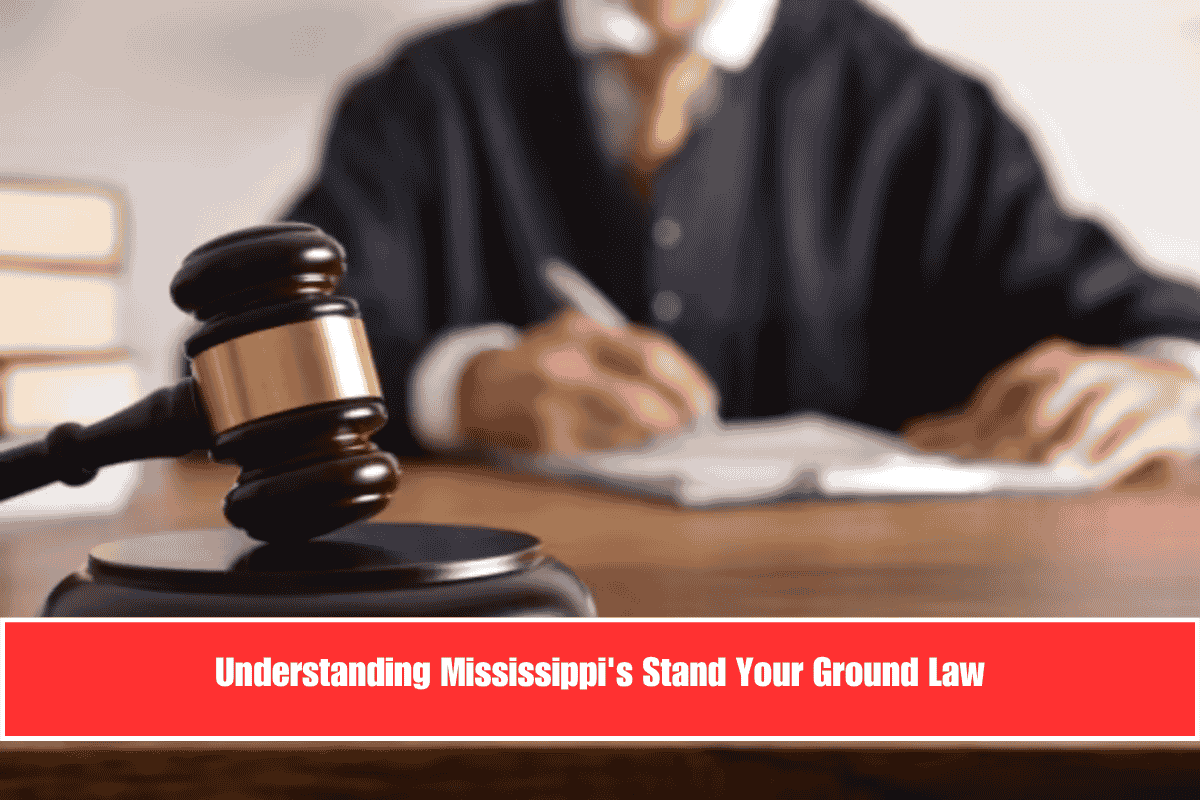Mississippi’s Stand Your Ground law allows individuals to use deadly force in self-defense without a duty to retreat, as long as certain conditions are met. This law is an extension of the traditional “castle doctrine,” which applies to one’s home, vehicle, or business, but Stand Your Ground also covers public spaces.
Key Provisions of the Law
- No Duty to Retreat: If you are not the initial aggressor and are in a place where you have a legal right to be, you do not have to retreat before using deadly force in self-defense or defense of others.
- Reasonable Belief: You must reasonably believe that using deadly force is necessary to prevent imminent death, great bodily harm, or the commission of a felony against yourself or another person.
- Location: The law applies in your home, vehicle, workplace, and any public place where you are lawfully present.
- Initial Aggressor Limitation: The protections of the law do not apply if you are the one who provoked the confrontation or are engaged in unlawful activity at the time.
Legal Presumptions and Protections
- Presumption of Reasonableness: If someone forcibly and unlawfully enters your dwelling, vehicle, or business, the law presumes you had a reasonable fear of imminent harm, making your use of force more likely to be considered justified.
- Jury Instructions: A jury cannot consider your failure to retreat as evidence that your use of force was unnecessary, excessive, or unreasonable.
- Criminal and Civil Immunity: If a court determines your actions were justifiable homicide under this law, you may be immune from both criminal prosecution and civil lawsuits for damages.
Limitations and Important Considerations
- No Protection for Aggressors: You cannot claim Stand Your Ground if you started the confrontation or were committing a crime at the time.
- Threat Must Be Ongoing: If the threat has retreated or is no longer imminent, your right to use deadly force may no longer apply.
- Investigation and Charges: Even if you claim self-defense, law enforcement will investigate the incident. If they believe your use of force was not justified, you could still face criminal charges, and it will be up to the court to decide if the law applies in your case.
Table
| Provision | Mississippi Stand Your Ground Law |
|---|---|
| Duty to retreat | No (if not the aggressor) |
| Where it applies | Home, vehicle, business, public spaces |
| Reasonable belief required | Yes |
| Presumption of reasonableness | Yes, if unlawful entry |
| Protection for initial aggressor | No |
| Criminal/civil immunity | Yes, if found justifiable |
Mississippi’s Stand Your Ground law removes the duty to retreat before using deadly force in self-defense, provided you are not the aggressor, are lawfully present, and reasonably believe force is necessary to prevent imminent harm or a felony. The law offers strong legal protections, but each case is subject to investigation and judicial review.
Sources
[1] https://giffords.org/lawcenter/state-laws/stand-your-ground-in-mississippi/
[2] https://en.wikipedia.org/wiki/Stand-your-ground_law
[3] https://www.criminalattorneyhernando.com/blog/2024/07/legal-consequences-of-self-defense-with-a-firearm-in-mississippi/
[4] https://billstatus.ls.state.ms.us/documents/2025/html/HB/0200-0299/HB0255IN.htm
[5] https://www.witherspooncompton.com/blog/2022/06/understanding-mississippis-stand-your-ground-law/












